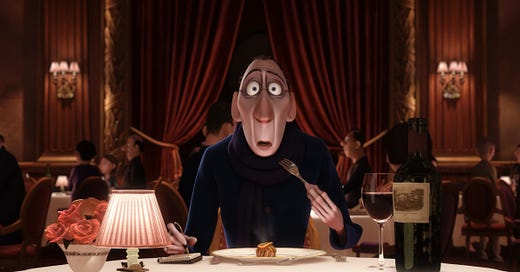Please consider preordering my upcoming book.
Recently I watched a surprisingly-good movie called Chang Can Dunk with my girlfriend, chosen pretty much at random from Disney+’s lineup. We weren’t expecting much, but it’s a fun and surprisingly delicate consideration of “never give up on your dreams” culture and its inevitable limits. It’s right in my wheelhouse in its willingness to point out a certain reality: everybody can do some things, but there are some things that some of us just can’t do. And all of the rhetoric about believing in yourself and never giving up, all of the social justice platitudes about accessibility and equity, can’t change that. The world isn’t fair. One of the ways it’s unfair is that some people are simply better than other people at certain skills and abilities. Born better. That’s true in athletics, it’s true in academics, and it’s true in creative fields. There’s an awful lot of mystification and obstruction when it comes to this reality, but I doubt there are very many people in the world at all who don’t understand it. Like so many other sad realities in human life, the fact that we aren’t all equally good at things has become impolite to mention.
Change Can Dunk made me think of one of the only Pixar movies I really like, Ratatouille, which is my second favorite of their films. (Toy Story 2 is number one.) Ratatouille, at its heart, is about talent and its fundamentally inegalitarian nature. In the world of the movie, a rat can be a very talented chef, where many humans can’t be - including Linguini, our B protagonist. What I’ve found to be remarkable about discussion of the film is the number of people who define its message in a way that’s directly contrary to the text. Online, on many occasions I’ve seen commentary that suggests that the point of the film is that anyone can do anything, that you just have to believe in yourself and never quit and you can do great things. For a film that states its thesis as directly as any I’ve ever seen, this is a stunning misinterpretation. (In fact this notion is explicitly denied in the very first scene of the film.) Our protagonist Remy the rat was blessed with cooking talent, proving that any kind of person (or “person”) can be talented, but this in no way suggests that any specific person will have talent. Indeed, we first learn of him by way of his God-given talent for smelling things other rats can’t smell. Why does he have that talent? Who can say. It’s in the stars.
All of this can be easily derived from the speech given at the end of the movie by the critic Anton Ego, in some sense an antagonist but also the film’s heart. As he puts it, it’s not that anyone can be a great chef, but that a great chef can come from anywhere. That simple distinction - that there’s a difference between saying that all kinds of people can be talented in all kinds of things and that any individual person can be good at anything they choose to be - is elegantly delivered even in direct voiceover. And it’s a perfect example of my pet belief that, sometimes, telling and not showing is fine. Ego is a lover of the arts, a partisan of the arts, and as such he does not have time for the sentimentality inherent to the false notion that everyone can be a great artist.




